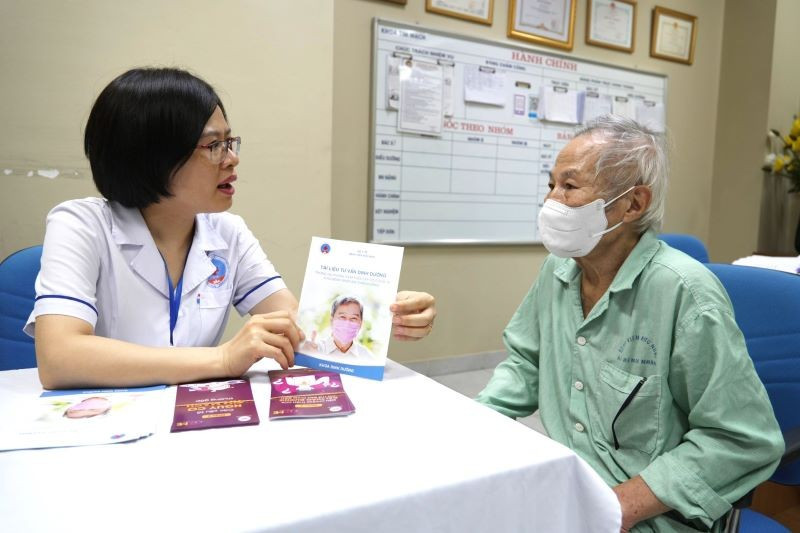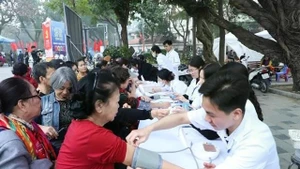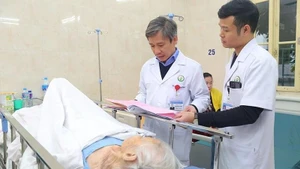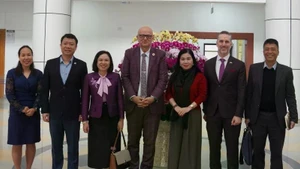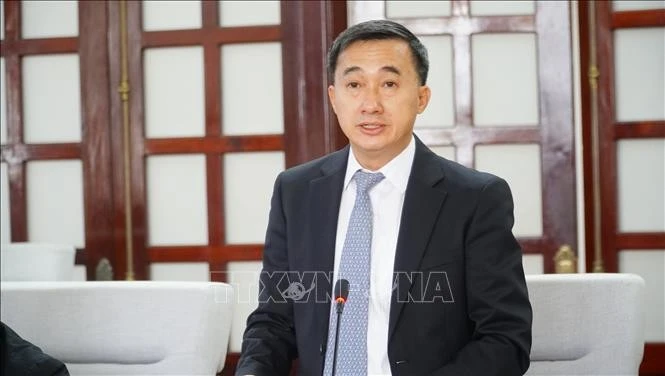Elderly care under the pressure of population aging
The world is currently experiencing an unprecedented rate of population aging. According to a United Nations report, by 2050, people over the age of 60 will account for about 22% of the global population.
In Vietnam, the proportion of elderly people is also rising rapidly, currently making up about 12% of the population, with this figure expected to increase to 25% by 2050.
Several challenges can be mentioned, such as shortages and limitations in policies, infrastructure, specialised medical services, and mental health issues among the elderly, who often suffer from loneliness and depression.
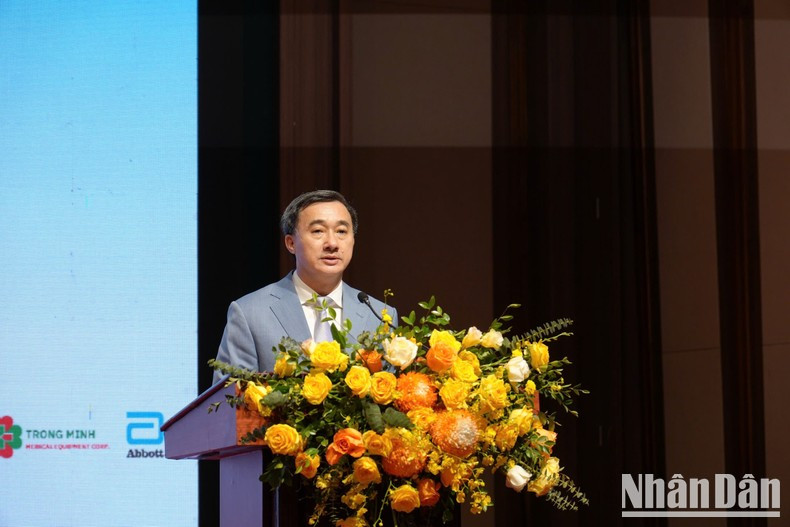 |
| Deputy Minister of Health Tran Van Thuan emphasised that Vietnam is facing major challenges in ensuring quality healthcare for the elderly. |
A notable fact is that while life expectancy is increasing, the number of healthy years does not necessarily follow the same trend. Many elderly people have to live with chronic diseases, leading to a decline in their quality of life and placing a significant burden on families and the healthcare system.
Deputy Minister of Health Tran Van Thuan said: “Vietnamese elderly people are facing a double burden of diseases: the accumulated effects of chronic non-communicable diseases such as cardiovascular diseases, diabetes, cancer, osteoporosis, and dementia, as well as a high risk of functional decline, treatment complications, drug dependency, and reduced quality of life."
For this reason, a multidisciplinary approach to elderly care and treatment is an inevitable trend to better meet the needs of comprehensive, continuous, and personalised healthcare for the elderly.
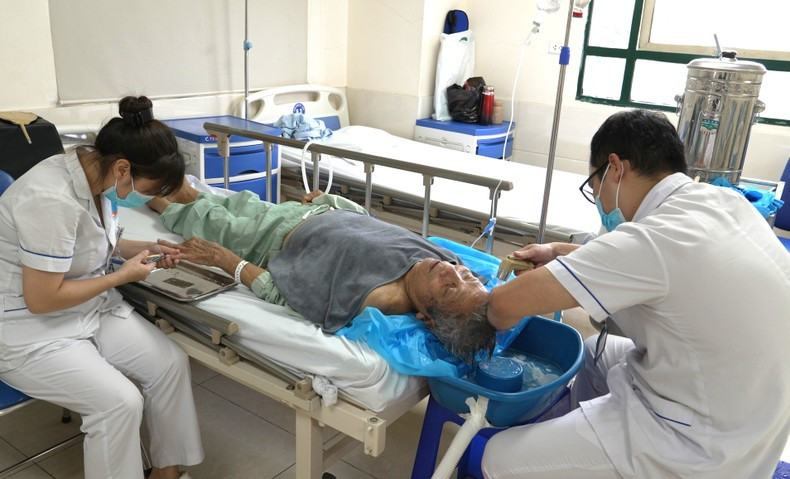 |
| To properly care for elderly patients, a multidisciplinary approach is essential to ensure comprehensive, continuous, and personalised healthcare. |
This model requires close coordination among various specialties, including internal medicine, cardiology, oncology, neurology, psychiatry, rehabilitation, nutrition, clinical pharmacy, and nursing. The process must cover all stages, from prevention, early screening, and diagnosis to treatment, hospital care, rehabilitation, and home or community care.
This is why improving elderly healthcare is not just about treating diseases but also includes prevention, rehabilitation, mental care, and social support.
Developing elderly healthcare models
In recent years, the Ministry of Health has been developing various policies and strategies to adapt to population aging, including the national strategy for the elderly and efforts to enhance the training of healthcare professionals specialising in elderly care.
However, to achieve sustainable results, it is necessary to continue promoting research, developing integrated care models, applying information technology and artificial intelligence, and, most importantly, ensuring cross-sectoral cooperation — not only in healthcare but also in social security, policymaking, education, and community engagement.
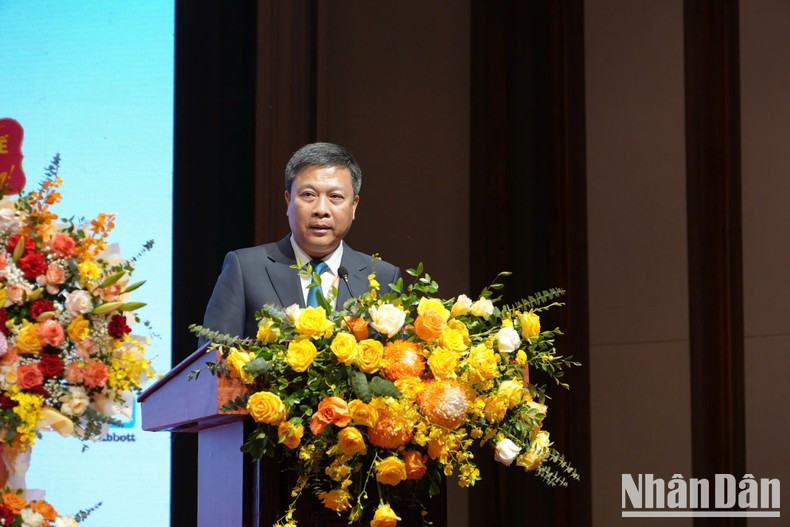 |
| Dr Nguyen The Anh, a senior physician and director of Huu Nghi Hospital, has been leading scientific conferences focused on key factors in managing elderly patients. |
In response to this situation, Huu Nghi Hospital organised an international conference titled “Multidisciplinary approaches in elderly patient management: Present and Future”. It created a scientific forum for researchers, doctors, policymakers, and healthcare organisations worldwide to discuss optimal solutions for improving elderly care.
The conference gathered a large number of experts and scientists from both domestic and international backgrounds, participating in specialised discussions on healthcare policies; common diseases in the elderly such as cancer, cardiovascular diseases, and chronic conditions; and, notably, the increasingly vital role of clinical pharmacy in ensuring safe and appropriate medication use.
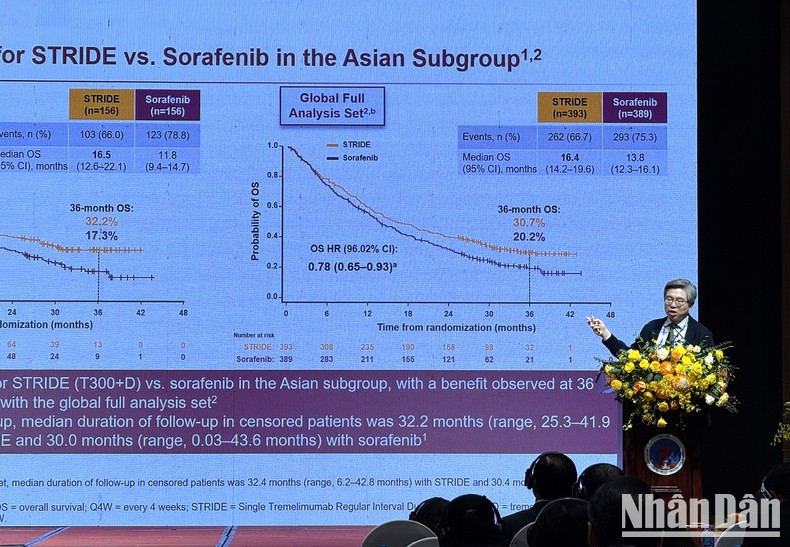 |
| Speakers from both Vietnam and abroad attended and presented their research. |
Additionally, the program facilitated the exchange of lessons learned from countries with advanced elderly healthcare systems, updated progress in diagnosing, treating, and managing cardiovascular diseases, oncology, pharmaceuticals, and the application of digital technologies in disease management and long-term care, including artificial intelligence, telemedicine, electronic health support, and smart assistive devices.
Elderly healthcare is not the sole responsibility of one organisation or one nation, it is a global issue that requires the joint efforts of the entire medical community, policymakers, and society to create a more effective and humane healthcare system for the elderly.
